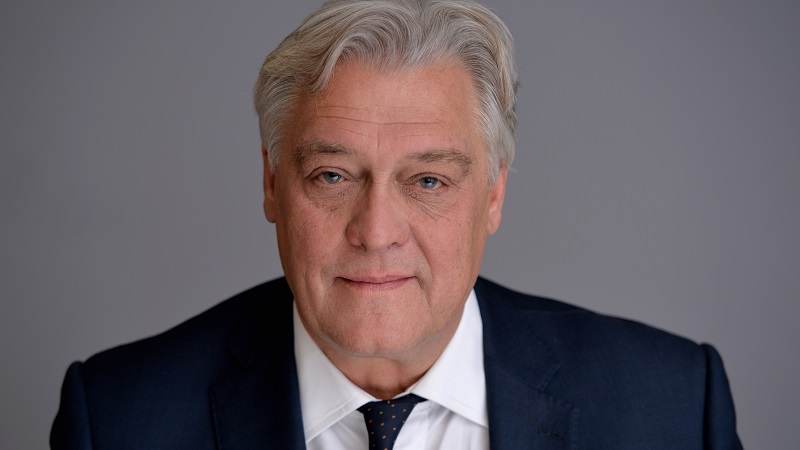Liontrust Asset Management’s outgoing chairman has reflected on steering the boutique manager “away from the rocks” in the aftermath of star manager exits, while making what appears to be a tacit recognition of Neil Woodford’s woes.
In a trading update this morning, Adrian Collins (pictured) discussed his 10 years at Liontrust and referenced the exit of star fund managers Jeremy Lang and William Pattison during his time there.
He said: “I have enjoyed the past decade as your chairman and look back with immense pride at how we steered the ship away from the rocks back in 2009 and 2010 when Liontrust was in a perilous state and was losing assets under management at an alarming and unsustainable rate.”
Adrian Lowcock, head of personal investing at Willis Owen, said Liontrust was struggling in 2010 after the loss of the two key managers. “The business has demonstrated a strong turnaround, this has been through a focus on some core funds and with clearly defined investment approach the group hasn’t tried to be all things to all people.”
Record net inflows
Net inflows for the period were the highest on record at £1.8bn compared to £1bn last year, as a result of flows into UK retail funds (£1.7bn), multi-asset (£129m) and international funds (£209m).
The asset manager reported a 55% increase in pre-tax profits reaching £19m, compared to £12.3m in 2018, with revenues up 10% from £77m to £85m.
Assets under management (AUM) saw an increase of 21% to £12.7bn, up from £10.5bn reported at the end of March last year. AUM as at close of business on 25 June 2019 was £14bn.
Tacit reference to Woodford?
A tacit reference to Neil Woodford’s investment process and the suspension of Woodford Equity Income Fund earlier this month also appeared to make its way into Collins’ final commentary.
He said: “It is because of the attractions of such investment approaches that I believe investors will continue to put money into actively managed funds. Well, at least those funds that offer well-defined investment processes so they do “what it says on the tin” and provide superior returns over the long term.”
The Woodford debacle has cast a cloud over active management and ‘star manager’ culture, said Jason Hollands, managing director at Tilney. “These comments are undoubtedly influenced by that and, rightly, making the point that each Liontrust team does have a very clearly defined and well-articulated investment process.
Lowcock added there is also wider point about how important it is to have clearly defined processes and investment philosophy.
Rise in regulatory costs
In the statement, Collins concluded as he said one headwind confronting asset managers now is the rise in regulatory costs, which are becoming “an ever-higher proportion of ‘fixed’ costs”.
“We must all be vigilant against asset managers becoming so large that they resemble utility companies unable to deliver superb performance. If this is the eventual outcome, it will be a sad day.
“Liontrust is counteracting this by assembling an excellent group of fund management teams and funds and striving to become more efficient. It is partly for the latter reason that we have just completed a major project to streamline our middle and back office.”
AJ Bell’s head of active portfolios, Ryan Hughes, said: “As the Chairman alludes too, Liontrust is a good example of where actively managed strategies can work well, particularly when they have a very clear philosophy and process that is well articulated to the market.
“In addition, looking at all aspects of the business, including the back office is an important part of ensuring the business is robust and appropriately managed at a time when there is likely to be ever more scrutiny on all aspects of fund managers businesses.”
Commenting on the results, Hughes said: “Liontrust is a business that has gone from strength to strength over the last decade on the back of some very good performance, particularly in the UK.
“In more recent years, some key hires have diversified the fund range, particularly with the high profile capture of David Roberts and Phil Milburn that could well grow into a strong franchise over the next few years. In addition, they are very strong in the sustainable market which is a clear growth area in coming years.”
Alastair Barbour is to take over the role of chairman after the annual general meeting in September.







